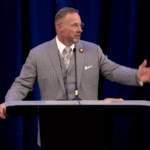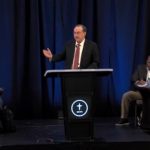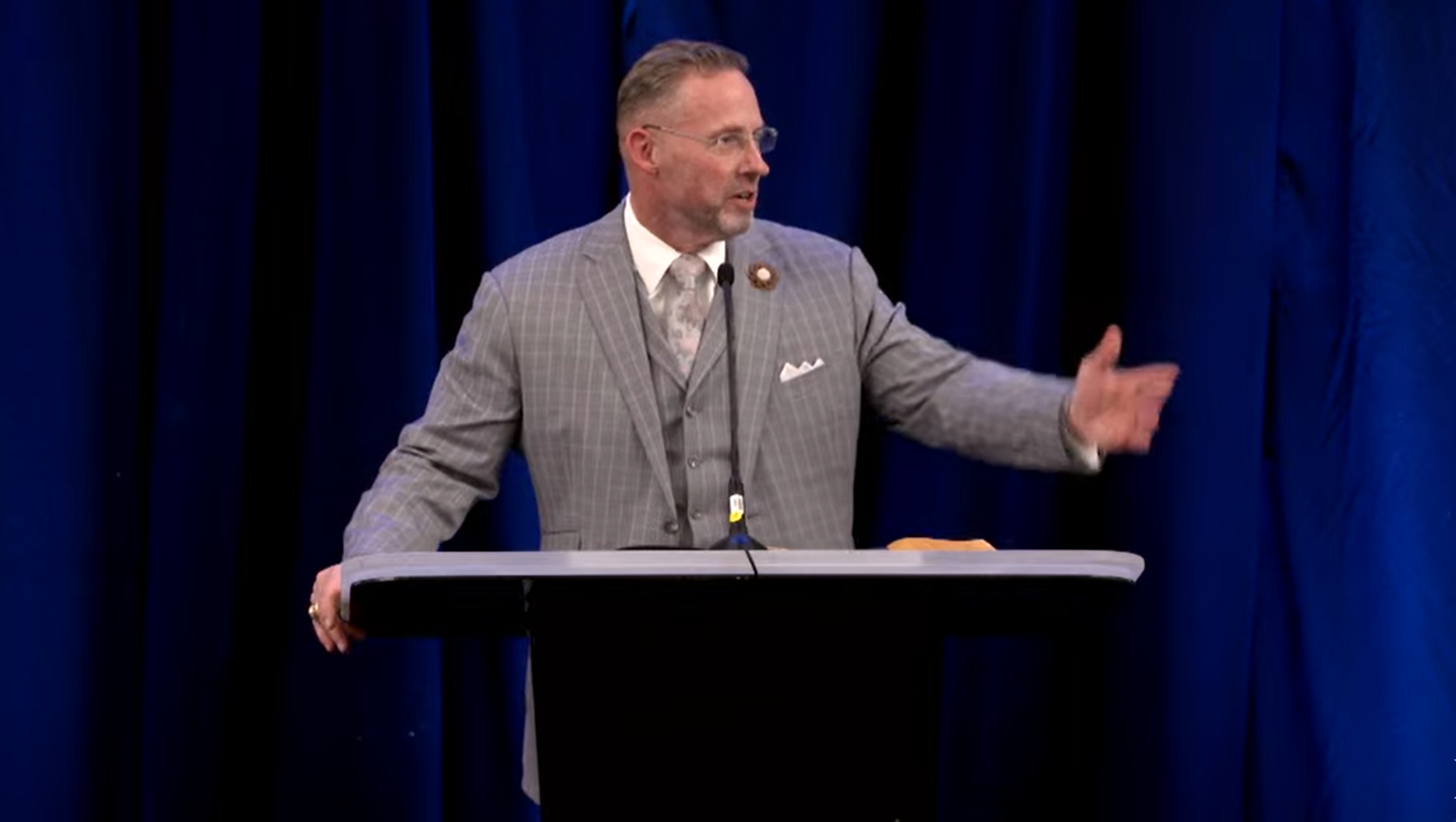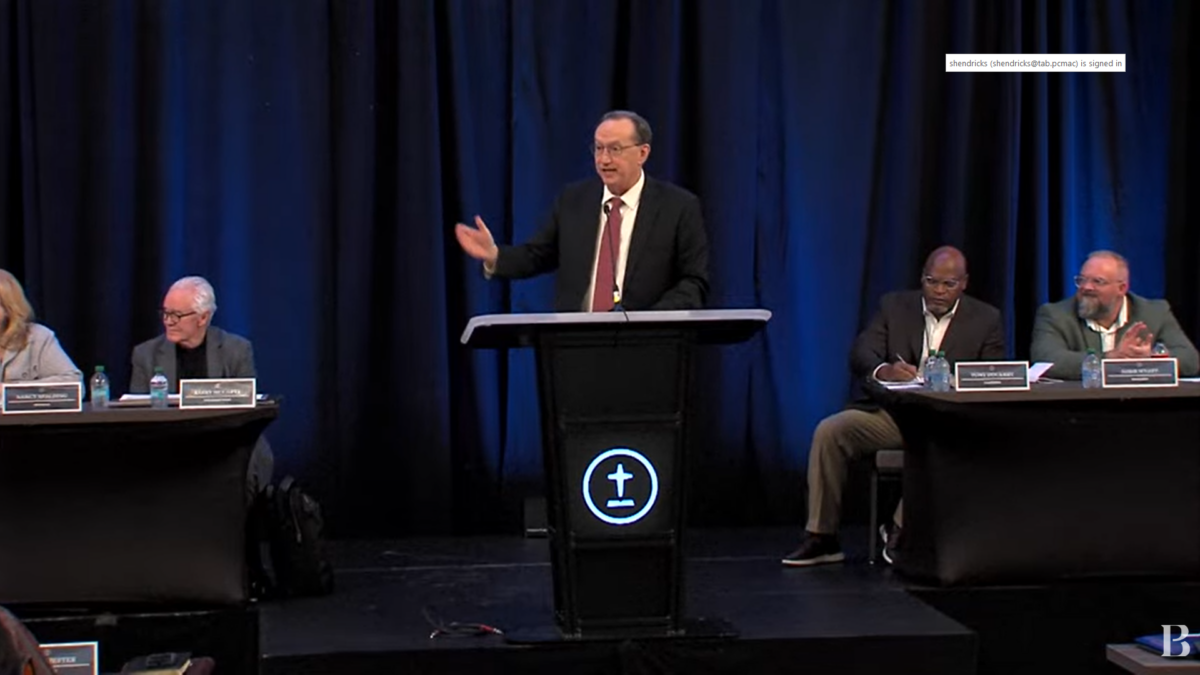In a show of support for the ongoing efforts to implement abuse reform measures in the Southern Baptist Convention, SBC messengers voted overwhelmingly in favor of extending the work of the Abuse Reform Implementation Task Force (ARITF) for another year.
The vote came on Wednesday — the final day of the SBC’s annual meeting in New Orleans — after the task force presented its report to messengers on the work that has been completed in the past year.
The ARITF will be renewable by each subsequent annual meeting as needed.
Marshall Blalock, a South Carolina pastor and chairman of the ARITF, said the outcome of the vote represented “a historic day” in SBC life.
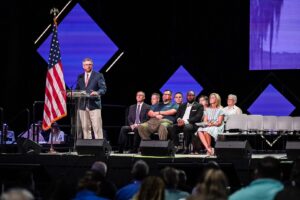
He noted that the vote also was a demonstration of “thousands of Baptist folks from around this country” coming together in unity to say, “Let’s keep this going.”
Blalock shared those comments during a press conference held after the vote was finalized.
Earlier, while presenting the task force’s report to messengers, Blalock choked back tears several times. He said that he and other members of the task force have had the “sad honor” of hearing stories of abuse victims over the past year. “My heart is broken for these (individuals),” he said.
Top objective
Blalock said the No. 1 objective of the ARITF was for SBC churches to be “the safest places on earth” for children. He noted the task force “serves at (the churches’) direction” and that “the real genius of the SBC is cooperation.”
The task force report included detailed information about the SBC abuse prevention website that eventually will include a database of offenders. Blalock noted that the task force is in the process of “vetting” the names that ultimately will appear on the list.
Task force members Kris Buckman and Jon Nelson provided further information about the website.
“Background checks alone are not enough,” Buckman said. “It needs to be multilayered.”
Buckman detailed the SBC’s “toolbox” of resources that the website currently provides, and said that the toolbox will be expanding in the coming months.
“Our states have made great strides” in the past year, she said. “Our prayer is that these resources will be helpful.”
Nelson said the database — and the accuracy of it — are paramount in the process of protecting churches.

“We cannot get this wrong,” he said, “and we will not get this wrong.”
Criteria categories
Marshall later detailed the four categories that will determine who is included on the database: confession, conviction in a court of law, civil judgment rendered and — perhaps the most controversial — determination by independent third party “according to a preponderance of evidence.”
Blalock said “there had been considerable discussions about Category 4 … and it is the one that has drawn the most interest and concern. (We) have consulted with many advisers and legal experts while working to develop the website. We are committed to implementing Category 4 as it is developed.”
Later, in a response to a comment made by a messenger from the floor, Blalock noted that only individual names — and not churches — will be included on the database.
Although there currently are no real names in the database, only “dummy” or fake names, Blalock said real names will begin appearing on the list in the months ahead.
Blalock concluded the report by quoting Galatians 6:9, “Do not grow weary in well doing,” and encouraged messengers to “keep going.”
“There has been more progress made in our local churches over the past year than there has been, probably, at any point in my lifetime,” he said. “But there is more to do.”
EDITOR’S NOTE — This article was written by David Dawson and is part of the team coverage of Southern Baptist Convention annual meeting and Executive Committee events by staff members from The Baptist Record, Baptist & Reflector, Baptist Message, Illinois Baptist, The Alabama Baptist and The Baptist Paper.



